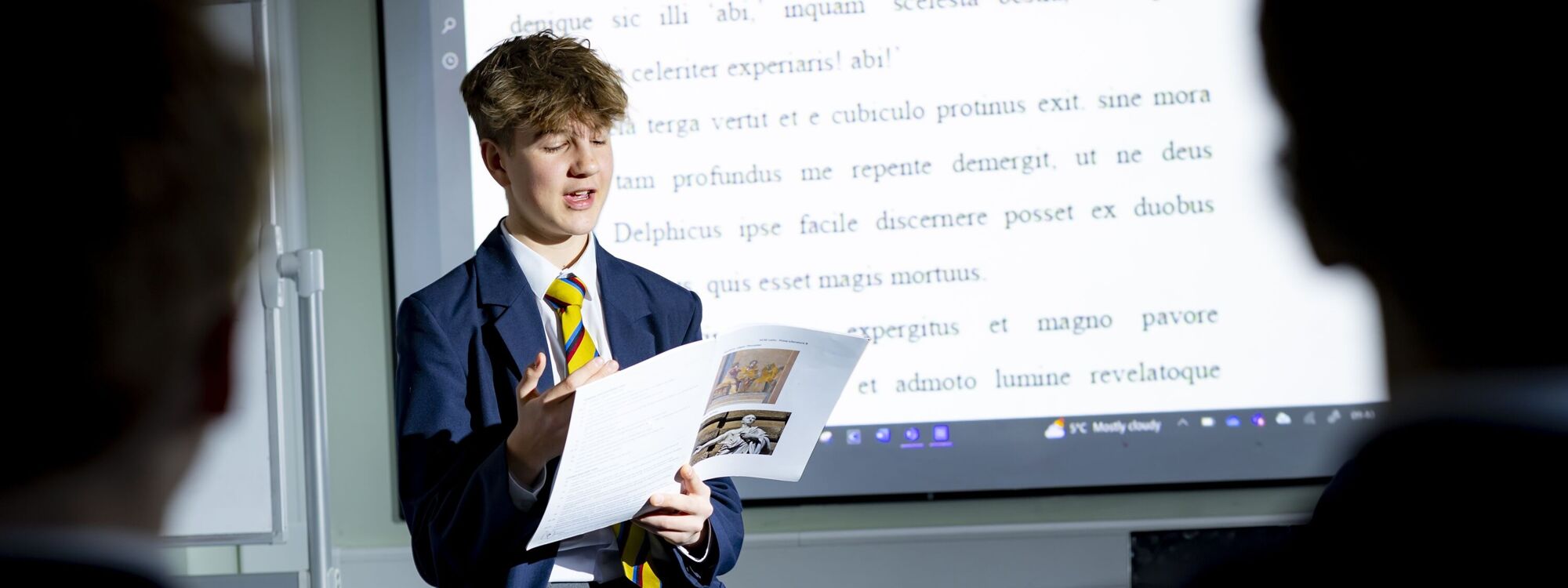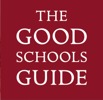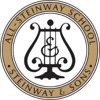
Classics, Latin and Greek
- Home
- Curriculum
- Subjects
- Classics, Latin and Greek
St Albans School is the perfect setting for pupils to explore the origins of democracy, literature and drama as they dive into the world of the Greeks and Romans. Embarking on this linguistic journey enables them to make etymological connections with other modern languages and analyse the importance of language and rhetoric to manipulate, persuade and inspire.
Becoming proficient in classical languages allows students to access classical literature, to understand their values, mores and cultures, their ideas of love and society; providing students with the tools to reflect critically on their world by juxtaposing it with the classical world, exploring concepts of xenophobia, misogyny and imperialism, which are still prevalent and relevant today.
Latin in the Lower School
By studying the life of Caecilius and his family in Pompeii, in the Cambridge Latin Course pupils become confident with the rudiments of the Latin language and learn the concepts of an inflected language, using translation, derivations and English into Latin to develop linguistic and lexical fluency.
In the Second Form (Year 8), the pupils exchange the bay of Naples for Mount Olympus as the de Romanis textbook continues to develop their linguistic skills and use the media of archaeological evidence, inscriptions, literature and sculpture to delve into the lives of heroes and gods, exploring what the Romans really felt about these immoral immortals and developing their analytical skills.
Latin in the Third Form
In the Third Form (Year 9) pupils follow the de Romanis textbook to further develop their linguistic skill, where they are challenged with more complex syntax and structure in preparation for the GCSE course. Study of the language is balanced with a study of the Romans. Pupils are also introduced to Ancient Greek, learning the alphabet and simple words and derivations to inform their GCSE choices.
Latin and Greek in the Middle School
Pupils can choose one or both of Latin and Greek GCSE. The courses are identical in content with an equal balance of language and literature. They develop their translation skills, their grammatical and syntactical knowledge and become confident at English into Latin/Greek. There are two literature papers, one verse and one prose and pupils read a range of authors including Ovid, Virgil, Tacitus, Pliny, Homer, Euripides and Herodotus, learning the skills of literary analysis.
Latin, Greek and Classical Civilisation in the Sixth Form
In the Sixth Form, Latin, and Greek are available at A Level and pupils continue their study of language and literature. The students strengthen their linguistic ability and study a range of classical authors, balancing their skills of translation, prose comprehension and comprehension with literary analysis and scansion. They examine literary influences and inter and intra textuality to assess the development of literature, recognising the impact of political and social events on their texts. Authors studied include Virgil, Ovid, Cicero, Tacitus, and Livy and for the Graecists, Sophocles, Euripides, Aristophanes, Homer, Herodotus and Xenophon.
Classical Civilisation is another A Level option, affording pupils the opportunity to study literature in translation and examine the history and culture of the ancient world by reading its drama, tragedy, comedy and philosophy, and studying its fragmentary evidence and visual artefacts. The course comprises three modules: Greek Theatre, the World of the Hero and Love and Relationships and equips the students with the tools of evaluation, critical reflection and flexibility of thought as they challenge their preconceptions and become independent, analytical learners.
Hylocomian Society
The School’s Classical society provides a plethora of hands-on opportunities such as Roman Soldiers and exploring artefacts from Verulamium in KS3, and for the older students, theatre trips, visiting speakers, trips to exhibitions and museums, presenting symposia, producing our Classical magazine, vox populi, showcasing musical talents at out Classical soirees and enthusing the younger years through the innovations and creativity of Classics Club. There are also the legendary odyssean trips to Italy and Greece in alternate years.







